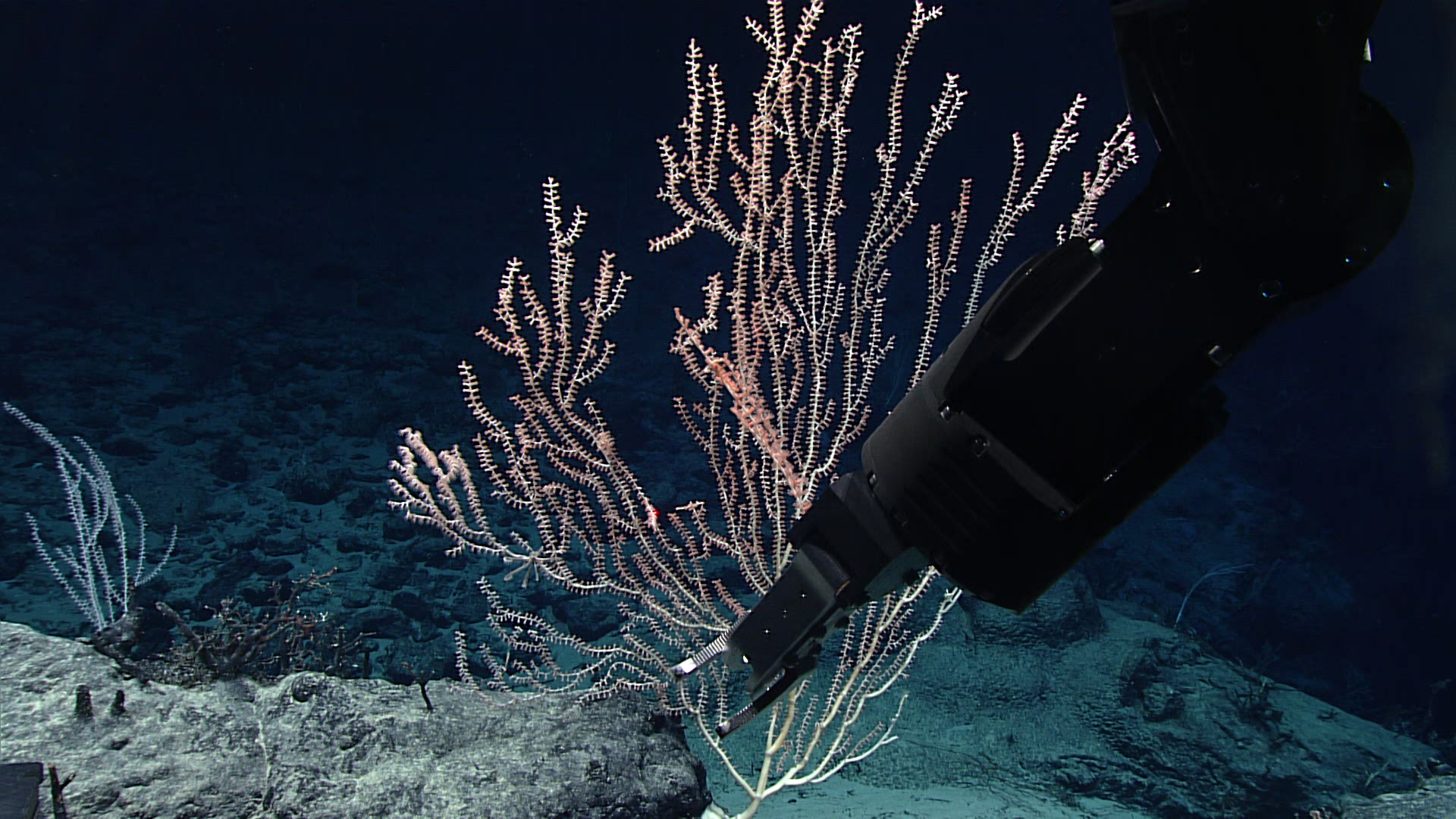NGI Researchers Working on Shoreline Data Management of Deep-Sea Specimens
March 31, 2022
The National Centers for Environmental Information (NCEI) works with NOAA Ocean Exploration and the Global Foundation for Ocean Exploration (GFOE) to manage the data collected onboard NOAA Ship Okeanos Explorer and by remotely operated vehicle (ROV) Deep Discoverer (D2). In addition to high-definition video data and environmental parameters such as water temperature, salinity, dissolved oxygen, location, and depth, D2 collects highly valuable biological and geological specimen samples. Managing these physical samples from the depths of our ocean is high-priority work. Biological samples may lead to new species identifications, range extensions, or medical advancements, while geological samples may unlock secrets of how a seamount formed or where a tsunami originated. In most cases, the areas in which samples are collected have never been explored.
During exploration of MacGregor Seamount on Dive 08 of the 2021 North Atlantic Stepping Stones expedition, the team collected a small piece of an octocoral in the family Plexauridae that may be a new species. This image of the collected sample was taken in the wetlab on NOAA Ship Okeanos Explorer as part of the sample data management process to record metadata about the specimens such as size. Image courtesy of NOAA Ocean Exploration, 2021 North Atlantic Stepping Stones: New England and Corner Rise Seamounts.
Click here to download the largest version (jpg, 6.3 MB).
The manipulator arm of remotely operated vehicle Deep Discoverer is used to clip a branch off a bamboo coral during Dive 02 of the 2021 North Atlantic Stepping Stones expedition. A small anemone was observed living on the coral, causing the coral to create small, basket-like branches around the anemone. The collected sample, once processed and made available to scientists, may help scientists better understand the relationship between the anemone and its coral host. Image courtesy of NOAA Ocean Exploration, 2021 North Atlantic Stepping Stones: New England and Corner Rise Seamounts.
Download largest version (jpg, 1.1 MB).
